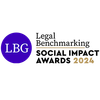A common attack used in opposition proceedings at the European Patent Office (EPO) is that of insufficiency. An assessment of insufficiency by the EPO involves deciding what ‘common general knowledge’ the skilled person has — but what exactly constitutes ‘general knowledge’ and where does the burden of proof lie? Here, our oppositions expert and qualified IP litigator Mark Earnshaw offers his two cents.
What is an ‘insufficiency’ attack?
‘Insufficiency’ is one of the four main grounds of opposition before the EPO (as per Article 100(b) EPC). For such an attack to be successful, a European patent must be considered not to disclose the given invention in a manner sufficiently clear and complete for it to be carried out by a person skilled in the art.
This ground is commonly used by opponents purely to increase the number of attacks made in the hope that one of these may ‘win’ (i.e., succeed in revoking the patent). Such attacks usually receive secondary attention, with opponents focusing on more substantive attacks like novelty and inventive step. As such, most insufficiency attacks are only made by patent attorneys and generically refer to the ‘common general knowledge’ without further input.
However, according to established EPO Board of Appeal case law, a successful objection to insufficiency of disclosure presupposes that there are serious doubts — but this must be substantiated by verifiable facts.
To establish insufficiency of disclosure in inter partes proceedings, the burden of proof initially lies with the opponent, who must establish — on the balance of probabilities — that a skilled person reading the patent (using common general knowledge) would be unable to carry out the invention (as per Case Law of the Boards of Appeal of the European Patent Office, 10th Edition, July 2022).
As such, the burden of proof lies with the opponent to substantiate the objection under Article 100(b) EPC through verifiable facts, rather than mere assertions.
How to combat an insufficiency attack
Therefore, an effective strategy to an insufficiency attack that is only based on undefined common general knowledge is to simply insist that the opponent provides ‘verifiable facts’ to support their view of the common general knowledge that is required to judge whether a claim is insufficient.
Notably, patent publications are generally not regarded as evidence of the ‘common general knowledge’ by the EPO. Finding suitable referencedocuments to satisfy the EPO beyond patent publications can be too time-consuming for the opponent, especially where they have only relied on their ‘in-house customs’ as being the ‘common general knowledge’ of the whole industry.
If more patentees followed this strategy, opponents would have to work much harder to win on Article 100(b) EPC.
Whether you are defending an opposition or attacking a third-party patent, our dedicated oppositions team can support you every step of the way. Get in touch with me at [email protected] for a free initial chat about your IP.



















